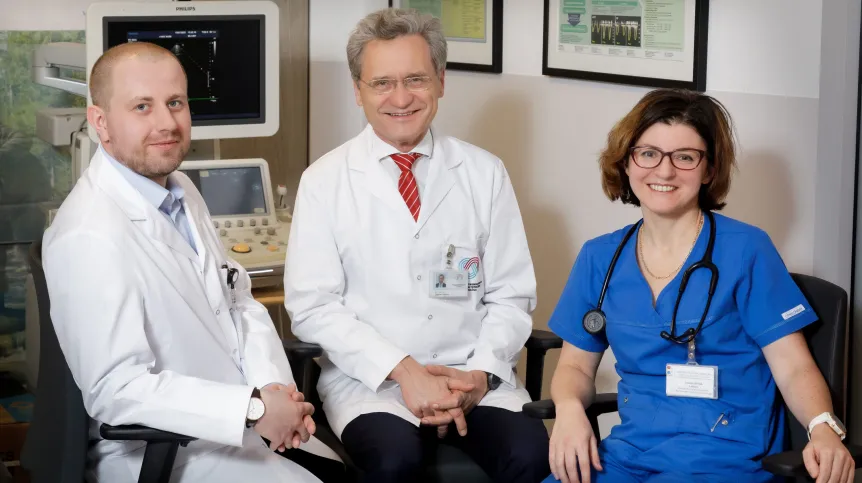
There is a chance that we can treat the immunodeficiency affecting patients with a rare congenital metabolic disease - glycogen storage disease type 1B (GSD 1b) - with a drug originally intended for the treatment of diabetes and heart failure, the press office of the Medical University of Warsaw reports. Clinical trials of the drug have been launched.
Scientists from the Medical University of Warsaw and from the Children's Memorial Health Institute start a clinical trial to improve the treatment of immunodeficiency - neutropenia, which, in addition to low blood glucose, is the most dangerous problem with affecting patients which glycogen storage disease type 1B (GSD 1b). This rare congenital metabolic disease is usually diagnosed in the first months of life. Depending on the type of mutation, there are several subtypes of GSD, including glycogen storage disease type 1B (GSD 1b).
According to the university's press release, this is the largest study in the world. Other trials will be conducted in France and Hong Kong.
'Our project is the largest such study in the world. We are recruiting as many as 20 patients, and we are the only centre to include not only children, but also adult patients (currently two) in study', says Professor Zbigniew Gaciong from the Department of Internal Medicine, Hypertension and Angiology, Medical University of Warsaw.
The professor explains that adult patients develop changes in various organs, which requires the involvement of experienced clinicians with various medical specialisations.
'Only a few centres in Poland treat adult patients with GSD 1b. In our clinic, they are treated by my team, whose members are Dr. Piotr Sobieraj and Dr. Joanna Bidiuk', he adds.
Neutropenia is an abnormally low concentration of neutrophils in the blood. Neutrophils are responsible for providing an adequate level of immunity. Immunodeficiency can pose a serious threat to the patient's life.
'Patients with GSD 1b suffer from frequent infections, mainly respiratory and skin ones. Sthese infections often require hospitalisation due to the threat to life', explains Dr. Piotr Sobieraj.
The experts point out that so far the neutropenia treatment options in patients with this disease have been limited.
'Specialists did not have many options for the treatment of neutropenia in patients with GSD 1b. The treatment was burdensome and dangerous for the patient because of the risk of cancer. Therapy required daily subcutaneous injections. Having injections everyday for years if far from pleasant', says Sobierj.
Patient can be protected from low blood glucose levels with a special diet based on corn starch.
Last year, research opened new perspectives for patients with GSD 1b.
'It has been shown that lowered concentration of neutrophils, and thus decreased immunity, results from the blood accumulation of a toxic compound called 1,5-anhydroglucitiol. Its excess in patients with GSD 1b induces dangerous immunodeficiency. Scientists began to search for a solution that would remove this toxic compound from the body', we read in the press release.
A chance for treatment of people with GSD 1b with a diabetes and heart failure drug - empagliflozin appeared last year.
'In the spring of 2021, a study on rodents showed that that after administration of empagliflozin - a drug registered for patients with diabetes and heart failure - 1,5-anhydroglucitiol is excreted by the kidneys. The reduction of its concentration allowed to improve the neutrophil function', says Dr. Sobieraj.
The treatment also alleviates other complications of the disease, such as intestinal or joint inflammation.
'There is hope that we can deal with the immunodeficiency using a drug originally intended for the treatment of diabetes and heart failure - empagliflozin. However, this requires clinical trials to evaluate the safety and effectiveness of such treatment. These trials will be conducted in two centres in Poland. In the case of a positive outcome, the quality of life of patients will significantly improve, as this decreased immunity is responsible for a significant number of complications and problems in GSD 1b', admits Dr. Dariusz Rokicki from the Department of Paediatrics, Nutrition, and Metabolic Diseases of the Children's Memorial Health Institute.
According to the release, if the application of this drug in patients with glycogen storage disease type 1B has the desired effect, it will improve the function of the immune system, and patients will not have to use earlier, burdensome therapy.
'We have over one year experience in the treatment of our patients with empagliflozin. I can now confirm that we observe significant benefits such as reduced severity of symptoms, the possibility of discontinuation of drugs and overall improvement of the quality of life', says Dr. Piotr Sobieraj.
The project 'Evaluation of Efficacy and Safety of Empagliflozin in Treatment of Neutropenia in Patients With Glycogenosis 1b' is co-financed by the Polish Medical Research Agency. The project leader at the Medical University of Warsaw is Dr. Piotr Sobieraj, the lead investigator is Dr. Dariusz Rokicki from the Children's Memorial Health Institute. The study conducted by Warsaw scientists was the world's second registered of the three planned trials of empagliflozin in patients with GSD 1b. (PAP)
Author: Klaudia Torchała
tor/ joz/ kap/
tr. RL













